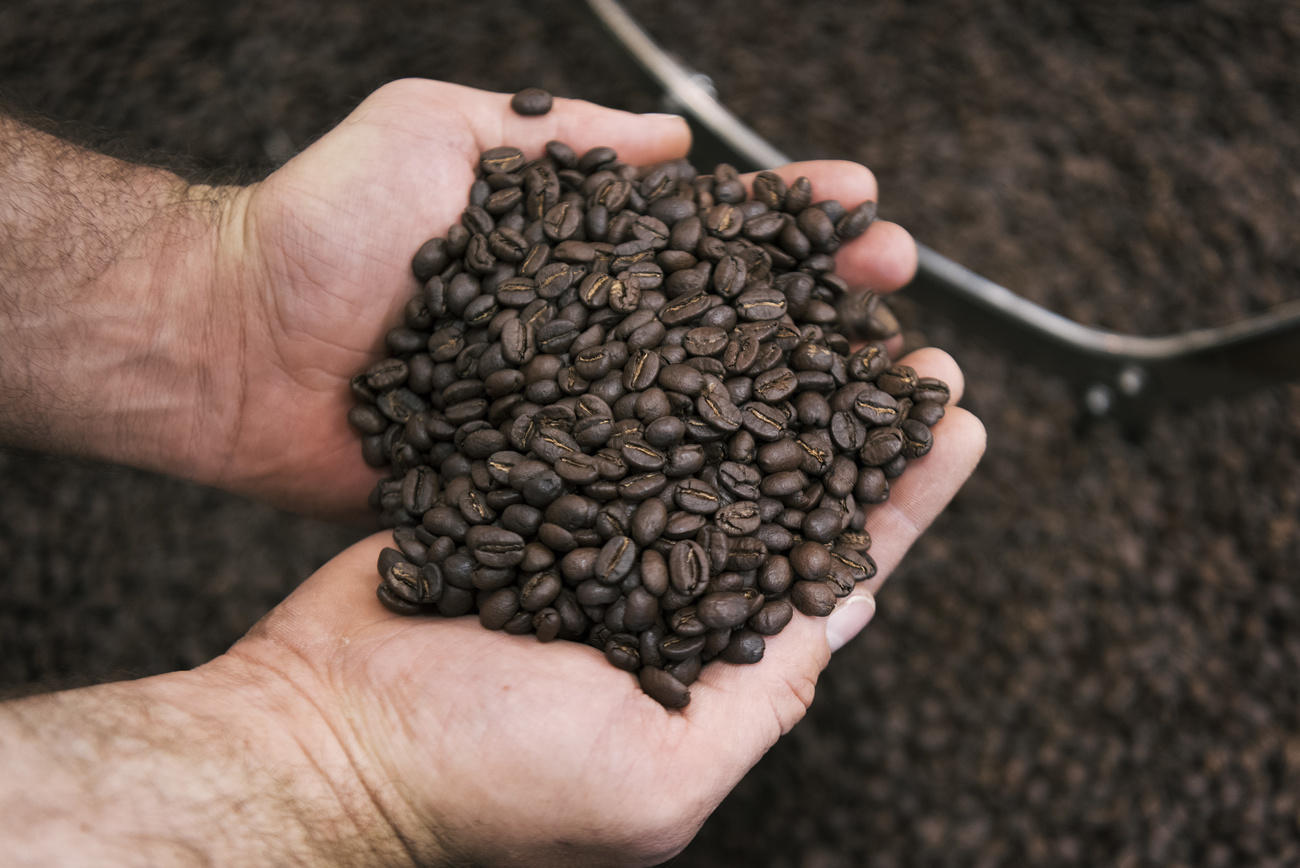
Swiss authorities rethink abolishing emergency coffee stockpile

A proposal to put an end to the stockpiling of coffee for the population in the event of an emergency is now being reconsidered.
This April, the government raised a few eyebrows when it announced that it was planning to phase out the practice of maintaining an emergency reserve of three months’ worth of coffee.
The Federal Office for National Economic SupplyExternal link (FONES) considered that coffee “was no longer a vital good” and that because of its low-calorie content it did not contribute to the daily energy intake required by a human being. The 16,500 tons of green or roasted coffee currently stored in the Alpine nation can therefore be sold if the project is definitively adopted.
The final decision was meant to be taken in November but has now been pushed back to January after the coffee industry backed keeping the reserve.
“This delay suggests the administration is planning a change of direction,” an official at reservesuisseExternal link, the organisation which helps manage the nation’s strategic food and grain reserves and which wants to preserve the coffee stockpile, told the Reuters news agency on Monday.
The role of the coffee industry is important as the responsibility of maintaining reserves rests largely with the private sector, not with the authorities. For example, an importer of coffee will be required by law to store some of it for emergency use. This avoids the need to build up large reserves in one place. In return, Switzerland finances the storage costs of companies through a reserve fund managed by the reservesuisse organisation. The cost of managing these minimum reserves is CHF14 ($13.70) per inhabitant per year.

More
Why Switzerland stockpiles for possible emergencies

In compliance with the JTI standards
More: SWI swissinfo.ch certified by the Journalism Trust Initiative



























You can find an overview of ongoing debates with our journalists here . Please join us!
If you want to start a conversation about a topic raised in this article or want to report factual errors, email us at english@swissinfo.ch.